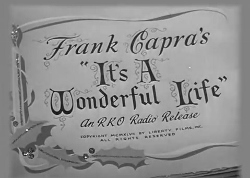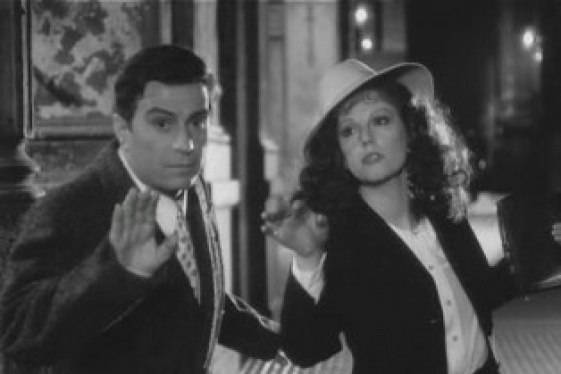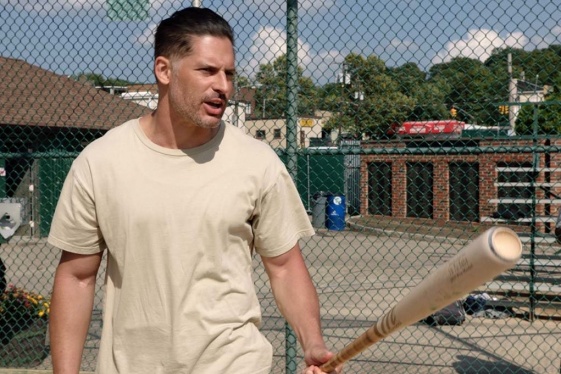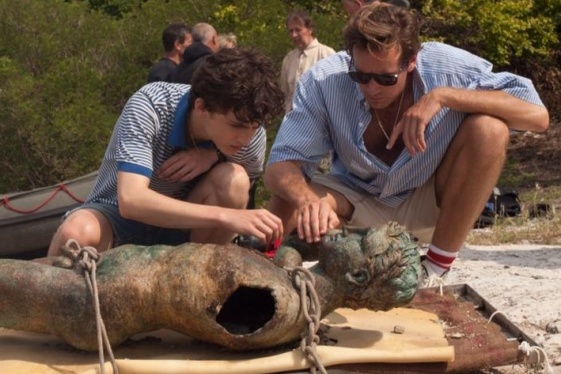

by Cookie Curci
During the dark decade of the 1930s, Frank Capra's films brought light where there was darkness and hope where there was despair to a nation in desperate need of an uplifting message. If only for a few minutes, in a darkened theatre, Capra's films inspired irrepressible optimism in American audiences, and when they left the theater, they left feeling better about themselves and the future of their world.
It's a Wonderful Life is one of Capra's most popular films. The Italian-American director emigrated here from Sicily during the great migration. As an immigrant, Capra celebrated his sixth birthday while in steerage aboard a ship bound for America. He would later come to feel a strong kinship for the oppressed, and many of his characters symbolized the prejudice that awaited the young immigrants in their new land. Few of us can recall every scene from a favorite film. What we do recall are small memorable pieces of time from these films. Frank Capra's 1946 Christmas classic, It's a Wonderful Life, is one of these uniquely enduring films.
In the film it's Christmas Eve, and George Bailey (Jimmy Stewart) finds himself amid an impending scandal. Frustrated with his life and the American dream gone bad, George reaches a bleak moment where he contemplates taking his life. Enter Clarence (Henry Travers), a heavenly angel who arrives on the scene to show George a vision of life had he never been born. George comes to understand his difficulties and disappointments are a small price to pay for his cherished values, love of family, enduring friendships and individual achievement.
To me one of the most important aspects of this film's "good vs. evil" concept is George Bailey's unwavering faith in the town's immigrant population, especially Mr. Martini, the owner of Martini's café. Bailey's social conscience inspires him to give the hardworking Martini family a loan based solely on their good work ethics and their promise to pay.
Opposing this form of charitable goodwill is the town's most powerful banker, the mean-spirited Mr. Potter (Lionel Barrymore), who dislikes and distrusts the ethnic minority and refuses to give the struggling immigrants any financial aid. His prejudice is clearly revealed when he refers to the Italian community as "George Bailey's garlic eaters." Potter's attitude keenly represented the prejudicial attitudes that prevailed in America at the close of World War II.
Because Capra was himself a young Italian immigrant, he was sensitive to this issues and to all the Mr. Potters of the world. As the son of a fruit picker, Capra's own success story is a tribute to the enterprising immigrant and a true Horatio Alger story. His service documentaries during World War II earned Col. Capra the distinguished service medal, the highest American military decoration for noncombat service.
It's a Wonderful Life was released to a post-war America that was in need of an uplifting film. Wartime battles, tragedies and a growing prejudice had touched everyone's lives with a grim reality. America--and the whole world--had changed. Capra's film renewed old hopes and faith in ourselves and in each other.
During the dark decade of the 1930s, Frank Capra became America's most popular filmmaker, In his films, Capra mingled Depression-era despair with the laughter of irrepressible optimism and created a winning formula. He packaged hope to the hopeless and a goodwill that lifted national morale as much as FDR's fireside chats.
At the close of the film someone bumps the Christmas tree, causing a bell to ring, and little ZuZu says, "Look Daddy! Teacher says every time a bell rings an angel gets his wings." Few of us can hear a bell ring during the Christmas season without remembering that quote and feeling just a little happier because of it.
Perhaps to the newer, more cynical generation, Frank Capra's work is saccharinely idealistic. Generations of Capra fans would disagree. To us the film is a statement of America's essential beliefs, its opportunities and the basic hopes that spring eternal in each and every one of us. Granted, we often fall short of our lofty goals, but never do we stop trying to achieve the universal pursuit to live "a wonderful life."
You may be interested
-
New York Italians Movie Night: "C'eravamo ta...
Dear Friends, New York Italians in collaboration with Fordham University, Department...
-
'A League of Their Own' director Marshall dea...
Actress and director Penny Marshall, whose love of sports made her a regular in the Los An...
-
'Avengers: Infinity War' Directors Inducted I...
The Russo Brothers were a pair of the Marvel Cinematic Universe's best directors even prio...
-
'Boardwalk Empire' Season 5 News: Vincent Pia...
Recently, actor Vincent Piazza, who plays up-and-coming gangster Lucky Luciano on the show...
-
'Bottom of the 9th': Film Review
With films like Two Family House and City Island, director Raymond De Felitta found easy c...
-
'Buongiorno Papà' vince Nice Festival Usa
'Buongiorno papà' di Edoardo Leo, film sui quarantenni single in Italia, interpretato da R...
-
'Cabrini' film features nearly 40 Buffalo loc...
Parts of Western New York have transformed into movie sets as crews filming "Cabrini" take...
-
'Call Me by Your Name' and 'The Shape of Wate...
The Los Angeles Film Critics Assn. had lots of love for Luca Guadagnino’s “Call Me by Your...










